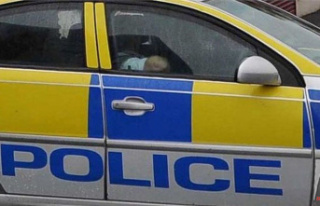After her daughter's collapse at nursery, a mum has started a campaign to increase brain tumor research.
Carly Joseph, from Sutton Coldfield, praised the medics for quickly detecting the illness in Marissa, who was just three years old.
Marissa is now six years old and has completed treatment. Ms Joseph stated that Marissa is back to her bright little self.
Brain Tumour Research charity stated that brain tumours kill more children than any other type of cancer.
Ms Joseph, 40 had come to pick Marissa up from nursery after she was told she had vomited. However, she said that she was not able to move her by the time she got there and started to put her in the car. "She was all floppy and ragdoll-like and was unconscious."
"I was sick with worry, I didn't know what was going on."
Staff from Good Hope Hospital in Sutton Coldfield noticed a shadow on Marissa's brain. A consultant from Royal Stoke Hospital also saw flat pigmented patches on Marissa’s skin.
Brain Tumour Research stated that they are a sign neurofibromatosis type 1, a genetic mutation that could lead to low-grade tumors in the body.
Marissa's case was different. It had evolved spontaneously from birth, the charity said.
Further scans revealed a brain tumor that was inoperable. Marissa started chemotherapy in July 2020.
Ms Joseph stated that she celebrated: "We had an informal gathering for Marissa with our friends in the street because of lockdown restrictions.
"We enjoyed cakes, and Marissa was able to ring the bell at the end of treatment with everyone cheering."
Marissa was discharged from her treatment and has been able to return to school in September 2020.
Her mother stated that she was a child who started behind her peers because of her illness. She had been diagnosed as having ADHD, which is common in those with neurofibromatosis type 1.
She said, "Despite all she has been through, she's still bright and happy girl she always used to be."
Brain Tumour Research stated that only 1% of national cancer research spending was dedicated to brain tumors.
It called for an increase in research spending to reach PS35m per annum.
Follow BBC West Midlands via Facebook, Twitter, and Instagram Send your story ideas to: newsonline.westmidlands@bbc.co.uk












